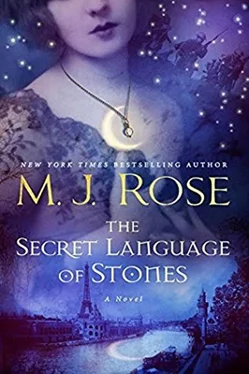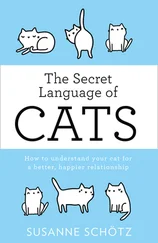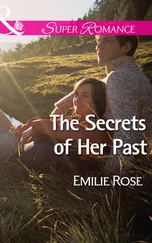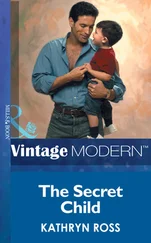“No, certainly not. What I do is encase a few strands of each child’s hair or a sliver of the tooth or a thread of the ribbon in between sections of a rock crystal, then bind that with gold and lock it together. I give you the talisman to wear on a cord, as well as the key.”
“How long will it take you to make this amulet?”
“I brought everything I needed with me and should be finished by this evening. We can do the reading tonight if it’s all right with you.” As long as it works , I thought. As long as the crystals don’t crack. As long as the stone’s energy intensifies the mementos. As long as the magick has traveled with me across the channel.
The Dowager picked up her exquisite enamel box and caressed it. “I’ve already lost my darling son. My entire beloved country. All I have left is the hope of these children.” She put the box in my hand and curled my fingers around its cold rectangular shape. Then, with surprising strength, she squeezed her hand around mine with such force the edges of the box dug into my flesh, hurting me. “Opaline Duplessi, I hope to God you fail,” she said, and gave me a heartbreaking smile.
I’d seen women weep in my shop, held them sobbing in my arms. I’d heard them speak with grief and anger, passion and pain, pleasure and melancholy about their lost loved ones. But I’d never seen anyone whose smile was as sad, or whose burden as heavy as the tsar’s mother’s in that moment.
She stood.
“Wait, before you go. I have something to give you,” I said.
“I expected you might. My son liked to plan ahead and told me Monsieur Orloff owned a necklace that-”
A knock on the door interrupted her.
“Who is it?”
“Yasin, Madame, there’s a visitor here to see you.”
Leaning forward, the Dowager whispered: “Only my sister and my nephew the king know I am in England. She’s come to visit for the day. I’ll come back later, you can give it to me then. I don’t trust everyone in this house, and we need to be very careful, you and I, yes?”
I wept as I placed part of each of the five locks of hair into the recess. I’d brought the finest crystal egg I’d ever found with me. I unfolded and smoothed out the list I’d drawn up of the Dowager’s grandchildren and checked the eldest’s information.
Olga, November 15, 1895, Scorpio
Tatiana, June 10, 1897, Gemini
Maria, June 26, 1899, Cancer
Anastasia, June 18, 1901, Gemini
Alexei, August 12, 1904, Leo
Once I’d carved the names, birthdates, and astrological signs, I added my tokens. The Ouroboros. The crescent moon. The single star. These, the symbols I’d chosen as my mantra when I’d made my first piece. Even without being trained, I’d chosen the symbolic sentence all Daughters of La Lune were taught. The crescent moon that marks our skin and brands us. The star-shine to shed light on the mysteries we encounter. And the Ouroboros to open magical doors for us.
I never received messages while I worked. When I made the talismans, I was a jeweler. Nothing else. Not the daughter of a witch. Not a mystic who could divine messages from stones. Not someone who could speak to the dead but an artisan practicing her craft. Designing and building a charm to give its wearer pleasure and comfort. Just a jeweler continuing a time-honored tradition of making mourning jewelry to commemorate and immortalize the love that tied one person to another.
As I worked that afternoon, rain pelted the window, and wind rattled the frame. Newspapers reported the summer of 1918 had been the rainiest season England and France had suffered in years. For us it was only gloomy and wet-for the men at the front it brought misery. There was no shelter on the battlefields, and trenches turned to mud. With soaked clothes, soldiers who were worn down and in already compromised states became ill.
At three o’clock, Grigori came to check on my progress and ask me to tea. I said I’d prefer a tray in my room so as to not waste time. He surprised me when, a half hour later, he arrived with it himself and set it on the desk.
I removed my jeweler’s glasses and joined him for finger sandwiches, scones, clotted cream with jam, and a large pot of very fragrant black tea. All despite the war rations in England, which were similar to ours in France.
“How is your work progressing?” he asked.
“It’s painstaking, but going well.”
“And you haven’t experienced any… you call them messages, correct?”
“No, I haven’t. I usually don’t at this stage. The only thing that happens sometimes is I get ill while I’m putting the talisman together.” I took a bite of a salmon sandwich and chewed. I hadn’t realized how hungry I was.
“But you don’t feel ill?”
I shook my head.
“Do you think that means anything?”
I took another bite of my sandwich. “No, probably not.”
“What’s wrong, Opaline?”
“Nothing, why?”
“When you’re upset, you purse your lips, like this.” He showed me.
“I do?” I said, surprised. Not so much that I made the same expression my mother made when she was upset. Rather, I was astonished Grigori knew my face so well.
“You do. So what’s bothering you?”
“There’s danger here. I can hear it, Grigori, like a low-level hum coming from the house itself.”
“You’re probably picking up on the castle’s history. Briggs told me about its bloody past as he was arranging the tray. He said he would never have chosen to serve here had the royal family not requested it of him.”
“That may be, but not what I’m sensing. Distant tragedies feel a certain way. Like wood worn smooth. But when I touch the crystals in the lamps in this house, or the marble on the fireplace, I hear a tense sound. High-pitched and jarring. As if the house is bracing for a new crisis. Something is going to happen while we are here. The Dowager must be in danger.”
“Of course traveling during wartime is always dangerous.”
“I don’t think that’s what I’m sensing. This feels like specific danger. Do you think the Bolsheviks found out she is here?”
Grigori stood up and came to sit beside me on the settee. He put his arm around me and held me close. When he spoke, he measured each word carefully. “I don’t think they could know she is here, no. And I don’t want you to be alarmed.”
“But isn’t she one of the symbols of the politics they’ve overthrown?”
“Yes. And for the same reason, she is precious to the tsarists and those who want to restore the monarchy.” He took my hand in his, reassuring me. “And that’s why this trip was arranged in such secrecy. But I don’t want you to be concerned. The Dowager is here anonymously as Madame Silvestrov. Only her own staff, the king, and his mother know who their guest is.”
“Thank you. I feel better. Now I should get back to work. I have a lot to get done and not a lot of time.”
Grigori leaned forward and kissed me. Not a chaste embrace, but not an invitation either.
“Don’t let me bother you. But if you don’t mind I’d like to stay.”
I preferred him to leave, but it wasn’t really a hardship to let him stay. So I went back to my makeshift workstation and the talisman while behind me Grigori stood and began to pace. The sound of his footsteps on the carpet, because of his limp, had an unnerving, uneven rhythm. And the longer he kept it up, the more it disturbed me and added to my growing unease.
If all was well, why was I so nervous? Why was he?
“What is this?” he asked.
I turned. He’d picked up the Dowager’s jewel box. “Is it Fabergé?”
“I don’t know. The empress brought it with her and it has-”
Читать дальше












